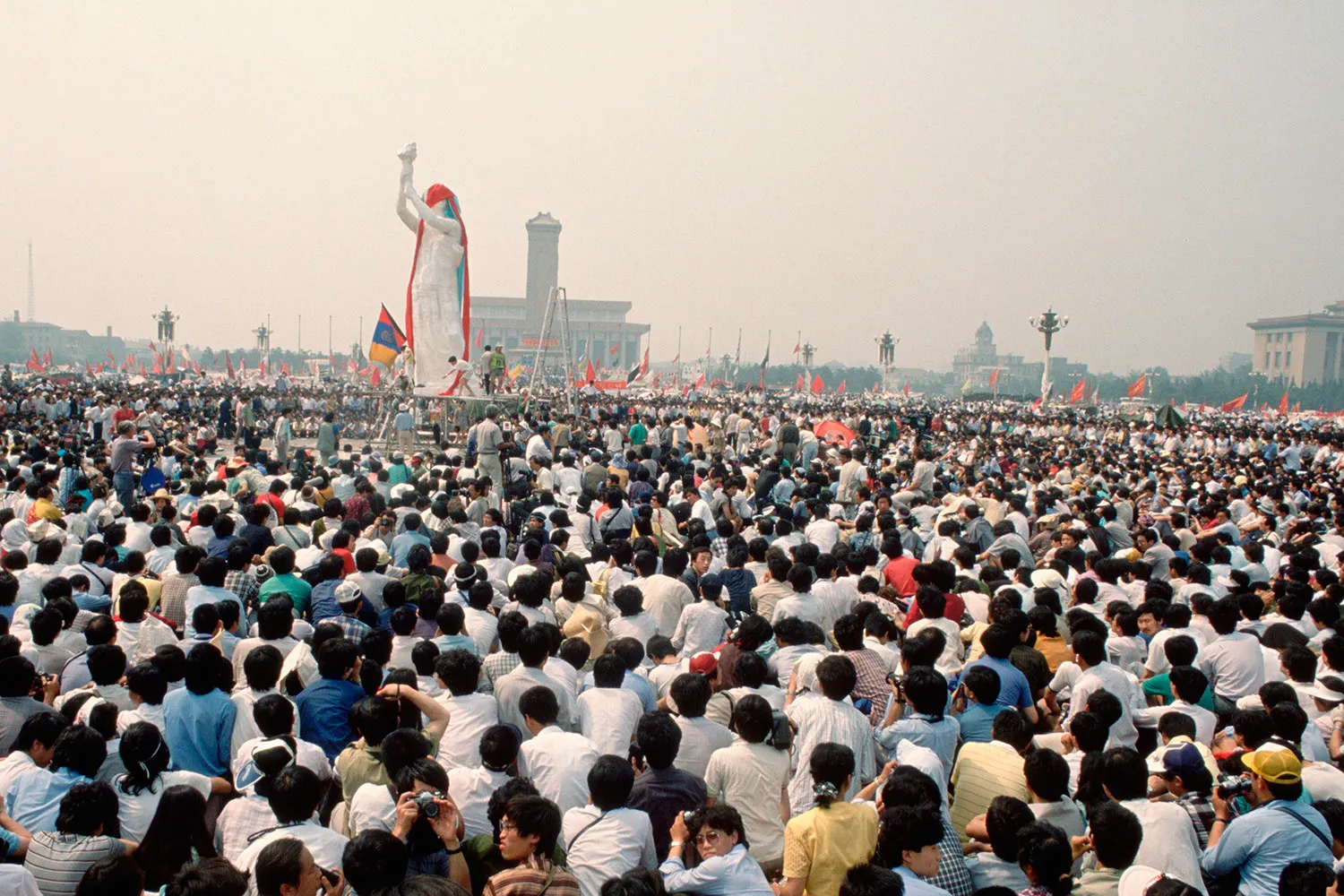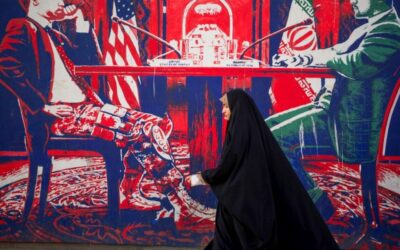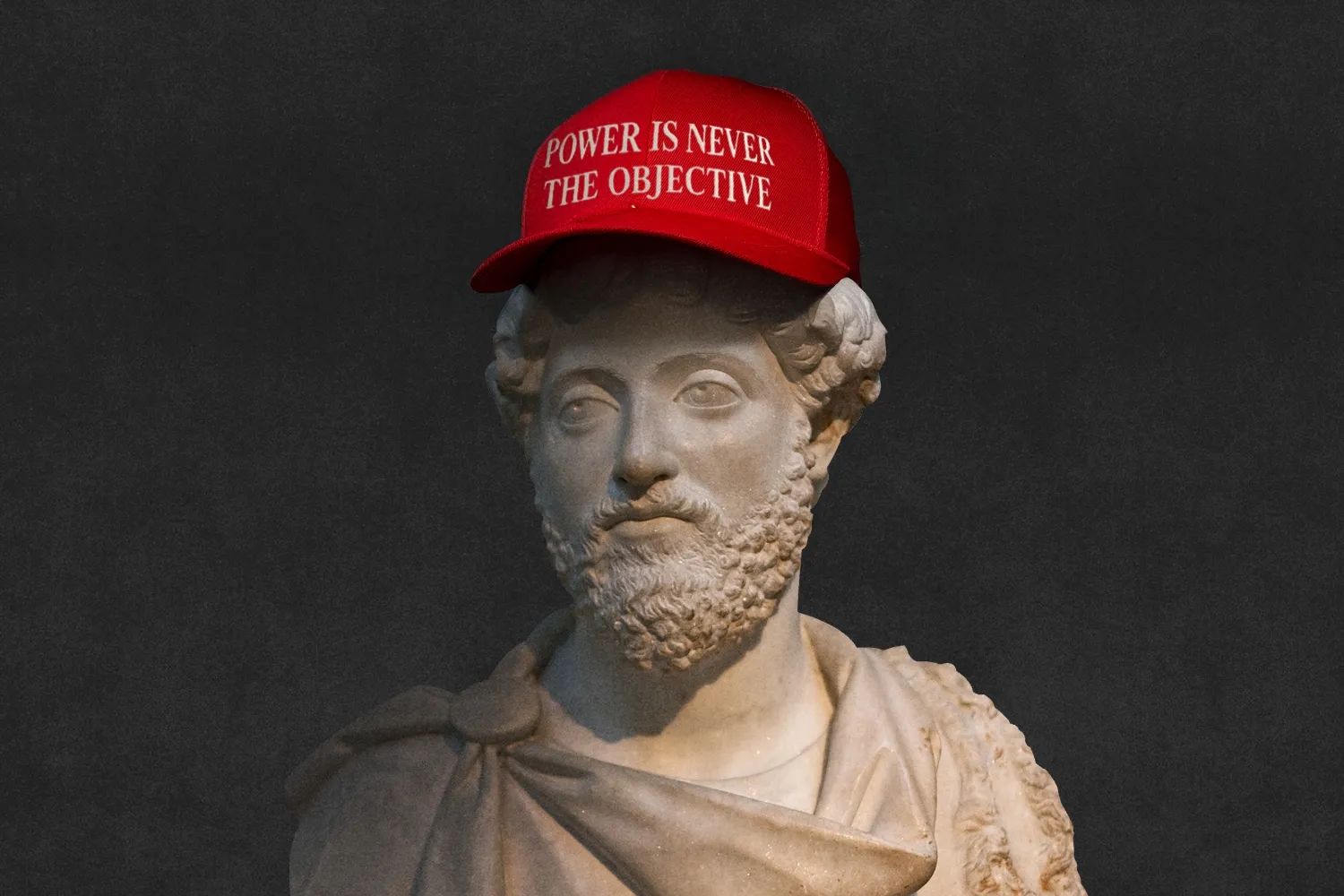Don’t Give Up on China’s Democracy Just Yet

Analysis
Don’t Give Up on China’s Democracy Just Yet
Scholars are increasingly making the case for reviving modernization theory.
A crowd surrounds the Goddess of Democracy statue, created in Tiananmen Square during the 1989 protests in Beijing. Peter Turnley/Getty Images Archinve
In the 1950s, social scientists popularized an idea that would go on to shape geopolitics: modernization theory, or the belief that economic development leads to the growth of liberal democracy. The theory was powerfully supported by the second and third waves of global democratization in regions such as Eastern Europe and Latin America, and it drove international support for China’s opening up from the late 1970s. Western expectations for China’s trajectory were boosted by the collapse of the communist bloc and Francis Fukuyama’s thesis that the triumph of liberal democracy was “the end of history.”
China seemed to be on track into the early 2000s. The theory’s predictions inspired U.S. policy from Bill Clinton (“[trade] will liberate the potential of its people”) and George W. Bush (“economic freedom creates habits of liberty”) to first-term Barack Obama, who went from supporting China’s rise to seeing it as a trade and security threat. In China, democratic ideals had simmered well before the bloodily suppressed Tiananmen protests in 1989 and were renewed after it.
In the 1950s, social scientists popularized an idea that would go on to shape geopolitics: modernization theory, or the belief that economic development leads to the growth of liberal democracy. The theory was powerfully supported by the second and third waves of global democratization in regions such as Eastern Europe and Latin America, and it drove international support for China’s opening up from the late 1970s. Western expectations for China’s trajectory were boosted by the collapse of the communist bloc and Francis Fukuyama’s thesis that the triumph of liberal democracy was “the end of history.”
China seemed to be on track into the early 2000s. The theory’s predictions inspired U.S. policy from Bill Clinton (“[trade] will liberate the potential of its people”) and George W. Bush (“economic freedom creates habits of liberty”) to first-term Barack Obama, who went from supporting China’s rise to seeing it as a trade and security threat. In China, democratic ideals had simmered well before the bloodily suppressed Tiananmen protests in 1989 and were renewed after it.
In 2008, human rights activist Liu Xiaobo, later a Nobel Peace Prize winner, co-authored a manifesto challenging one-party rule, while a debate raged among Chinese Communist Party (CCP) elites on how to deepen political reforms, such as by expanding consultation with experts and the public.
But hopes for China’s opening up—raised in part by the thriving examples of neighbors such as South Korea and Taiwan, which had shifted from authoritarianism to democracy decades before—were soon shattered. Liu landed in jail and eventually died on medical parole. Even before Xi Jinping came to power in 2012, Beijing’s relations with liberal democracies worsened amid its rising authoritarianism, tightened surveillance, stricter limits on freedom of expression and information, and trade disputes. They hit new lows with crackdowns on Hong Kong and Xinjiang and friction with Taiwan and in the South China Sea.
Today, many analysts have forsaken modernization theory, accusing it of false promises that led the West to feed a tiger, especially after Xi ended presidential term limits in 2018. But even as a prominent index has found global democracy worse off than at any time in since its first ratings, some scholars have stayed the course. This group of academics believes the theory should not be discounted, pointing to evidence that democratic stirrings—while overlooked—are alive and well in Chinese society, despite Beijing’s best efforts.
#gallery-2 {
margin: auto;
}
#gallery-2 .gallery-item {
float: left;
margin-top: 10px;
text-align: center;
width: 100%;
}
#gallery-2 img {
border: 2px solid #cfcfcf;
}
#gallery-2 .gallery-caption {
margin-left: 0;
}
/* see gallery_shortcode() in wp-includes/media.php */
- Demonstrators take part in a pro-democracy “Stand With Hong Kong” rally in Pasadena, California, on June 12, 2021.Ringo Chiu/AFP via Getty Images
- Chinese pro-democracy activists gather to commemorate the one-year anniversary of China’s White Paper movement, seen in Washington, D.C., on Nov. 29, 2023. Drew Angerer/Getty Images
“The evidence continues to show there is a steady expansion of democratic and liberal values and norms within the Chinese society,” said Sungmin Cho, vice director of the Sungkyun Institute of Chinese Studies in Seoul. “Although change of the political system has not happened yet, that does not deny the causal process of modernization theory.”
Cho’s views capture the beliefs of many academics who continue to support the theory. Joseph Yingnan Zhou, a political scientist at the University of Texas at El Paso, said that “economic development changes people’s attitudes … in a more democratic direction,” making them “less accepting of authoritarianism and dictatorship.” In his research, Zhou has found that public opinion—particularly in economically developed provinces of China, rather than in the middle class at large—has increasingly favored democracy and values such as freedom of speech, equality, and the rule of law. Still, he acknowledges that “absolute levels” of support for those values remain relatively low throughout the country.
Wu Yu-shan, a political scientist at Taiwan’s Academia Sinica, also trusts the theory’s predictions that “more urbanization, more educated young people, and contact with the international society increasing … lead invariably to pluralization and demand for democracy.”
Wu thinks that China has simply taken a detour from reforms of past decades, including efforts to set up a more consensus-driven political system, greater legal and speech rights for citizens, and an internet uncontained by the Great Firewall. The tide had already begun to turn in the early 2000s under external pressure from pro-democratic color revolutions in post-Soviet states and internal hardliners in the CCP.
Wu believes we “have to patiently wait” for the return of Chinese reformers. In his view, this is particularly important for Taiwan, where China’s political direction is an existential issue as Beijing continues to threaten unification by force. Hopes for China’s eventual transformation power the ideology of a pro-unification faction within Taiwan’s opposition that believes that Beijing will one day democratize, making peaceful unification possible. Even so, both Taiwan’s ruling party and the opposition tend to treat democracy in China as a distant ideal rather than a near-term political solution.
“In principle, Wu is right,” said Steve Tsang, director of the SOAS China Institute in London. “If China becomes a real democracy, with free flow of information and scope for open debate about history, national identity, national interests, etc., [Beijing] may or may not stick to the CCP’s post-1949 claim that Taiwan is a sacred territory of China, and the issue may go away.” But, he added, “there is practically no chance of China becoming democratic … while Xi is alive and in power.”
Chinese President Xi Jinping casts his ballot during a vote on an amendment to abolish presidential term limits, seen in Beijing on March 11, 2018.Kevin Frayer/Getty Images
Even modernization theory buffs like Cho forecast at best a moderation of authoritarianism in the near term. Because China lacks the basic elements of opposition forces like those that stepped in when Taiwan and South Korea democratized, “top level institutional change [is] not going to happen anytime soon,” Cho said.
Many scholars remain less optimistic. For Chenggang Xu, a political economist at the Stanford Center on China’s Economy and Institutions, such a change will never happen under the CCP. In his view, the theory misunderstands the nature of Beijing’s regime. “China is not authoritarian,” he said, but a “communist totalitarian regime” like North Korea, where there is no freedom of assembly or speech.
In Xu’s view, it is easy to misinterpret Beijing’s earlier reforms. China’s decision to open up, he said, stemmed from CCP leaders’ realization that Soviet reforms had failed—leading to the bloc’s collapse in 1991—due to their insistence on economic centralization and exclusion of private business. So the CCP allowed private enterprise at the local level and gradually loosened controls, which helped the private sector prosper. As China developed, this looked like steps toward democratization, but that was a naive “illusion” soon shut down by the CCP, which never loosened its monopoly over power, resources, and ideology, Xu said.
A cardboard cutout of Chinese President Xi Jinping with a yellow umbrella, a symbol of the pro-democracy movement, is surrounded by activists in Hong Kong on Oct. 28, 2014.Alex Ogle/AFP via Getty Images
Once China reached superpower status, Xu said, it “worried a lot more about the so-called color revolutions,” which suggested “that the modernization theory would prevail.” The CCP thus reasserted firm control over the private sector, rejected calls for constitutionalism, and further limited free speech.
According to Xu, these policies account in part for the current economic downturn, which is shrinking China’s middle class, leading to the flight of entrepreneurs, and undermining globalization and relationships with the West. But these moves also ensure that economic development by “growing the so-called middle class would not automatically lead to democracy,” Xu said.
Indeed, Chih-Jou Jay Chen, director of Academia Sinica’s institute of sociology, emphasizes that most Chinese people, including higher-educated and young people, support Beijing’s authoritarian rule. Public opinion polling in China is inconsistent and difficult to do accurately, but he said that surveys show that most Chinese people think Taiwan’s democracy “is a joke,” while Western democracies are “chaotic.” “They think that way from their heart,” he said. “Nobody forced them.” This stance is partly a product of strident nationalistic sentiment driven by Beijing-directed education and supported by the country’s internet firewall.
The lack of interest in democratic institutions may stem in part from lack of exposure. “In a real sense, they don’t understand what democracy entails,” Zhou, the political scientist at the University of Texas, said. This may have to do with China’s promotion of itself as a “Chinese-style democracy,” a concept based on a 2005 white paper on democracy. Despite backsliding on reforms, China’s leaders claim that they understand citizens’ needs through public consultation overseen by local and national “people’s congresses”—unelected, rubber-stamp forums—while at the same time downplaying freedom of expression, the media, and judiciary as key parts of a democratic society. In 2022, the CCP even announced a “Chinese-style modernization theory,” which essentially reiterates the 2005 policy under a new name.
Protesters hold up pieces of blank white paper as they march during a protest against China’s strict zero-COVID measures, seen in Beijing on Nov. 27, 2022.Kevin Frayer/Getty Images
Yet the seeds of democracy in China—even if often drowned out—may be more important than they first appear. Public opinion in China matters to the CCP. In the 2022 white paper protests, public anger was pointed not only at repressive COVID-19 policies, but at CCP rule. Xi responded to the demonstrators’ demands with lightning speed. The protesters, mostly middle-class people and students in major cities, are widely credited with bringing about the end of China’s draconian pandemic measures. They could be a rehearsal for future demonstrations.
As Zhou acknowledged, the middle classes in China “have assets and they have their houses. They have a lot vested in the system.” The vast majority of household wealth is in real estate, where a collapsing bubble has not yet bottomed out. If China’s economy—a major source of the CCP’s legitimacy—collapses suddenly, as happened in the Soviet Union, “a large segment of China’s population will be on the side of real political change,” he said.
Consider, for instance, Argentina and other South American countries, where substantial development followed by economic crisis led to the end of authoritarian rule. “If you have a population that is more accepting of democratic values, like what happened in South Korea and Taiwan, then the outcome of a democratic country is more likely,” Zhou said.
Over time, rising popular demand for rights and empowerment may be “liberalizing or even democratizing”—or the CCP could just continue to crack down, said Joseph Wong, a political scientist at the University of Toronto. While the party may be “resolutely anti-democratic” now, said Wong, “these are choices that the regime is going to eventually have to make.”
In a 2023 speech to the CCP’s Central Committee, Xi said, “A fortress is most easily breached from within. The only ones who can defeat us are ourselves.” Why has Beijing in the early 2020s pushed the fiction that it is already a democracy? Why has Xi talked up China’s “whole-process people’s democracy”? Why does the CCP harp on the defects of democracy in Taiwan, the United States, and elsewhere around the world? Could it not be because of the rising volume of demands for democracy at home? Modernization theory may be a coarse tool, but all told, the dial still points to the simple conclusion that openness and democracy in China should not be written off yet.
Neal E. Robbins is a freelance journalist based in Cambridge, England. He was formerly a foreign correspondent in Hong Kong, Taiwan, India, and Europe. He is the writer-director of the award-winning 2024 documentary Taiwan Undaunted.
More from Foreign Policy
-

Periodic table The Periodic Table of States
The org chart for a post-Westphalian world.
-

French Emperor Napoleon Bonaparte leads the final assault by the Imperial Guard before his defeat at the Battle of Waterloo in what is today Belgium, on June 18, 1815. The Cost of Ignoring Geopolitics
Like Napoleon and the Ming dynasty, Europe is paying the price for strategic blindness.
-

Donald Trump holds solar eclipse glasses. What I Got Wrong About Trump’s Second Term
I didn’t entirely see this coming. Here’s why.
-

A woman walks past an advertisement for the Russian army at a bus stop. Russia Is Only Winning Inside Trump’s Head
As Russians will tell you, the reality on the ground looks very, very different.















Join the Conversation
Commenting on this and other recent articles is just one benefit of a Foreign Policy subscription.
Already a subscriber?
.
Subscribe
Subscribe
View Comments
Join the Conversation
Join the conversation on this and other recent Foreign Policy articles when you subscribe now.
Subscribe
Subscribe
Not your account?
View Comments
Join the Conversation
Please follow our comment guidelines, stay on topic, and be civil, courteous, and respectful of others’ beliefs.
Change your username |
Log out
Change your username:
CANCEL
Confirm your username to get started.
The default username below has been generated using the first name and last initial on your FP subscriber account. Usernames may be updated at any time and must not contain inappropriate or offensive language.